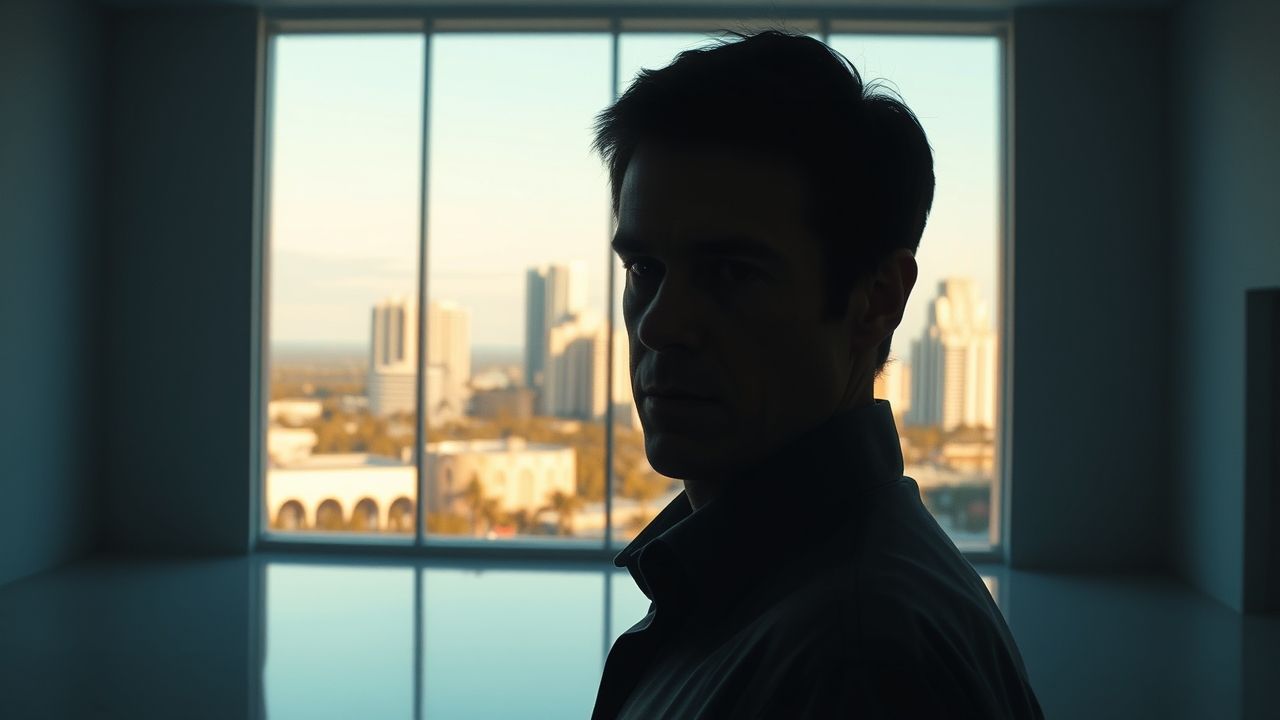The Enigma of Dexter: Unpacking a Pop Culture Phenomenon
From the sun-drenched streets of Miami to the dark recesses of the human psyche, few characters have captivated audiences quite like Dexter Morgan. A blood spatter analyst by day and a vigilante serial killer by night, Dexter navigated a perilous double life, forcing viewers to confront uncomfortable questions about justice, morality, and what truly makes a monster. The Showtime series, which ran for eight seasons and returned with a highly anticipated revival, not only redefined the anti-hero archetype but also sparked a global conversation about the nature of evil and the allure of poetic justice. This deep dive explores the multifaceted layers of one of television’s most iconic figures, examining the enduring fascination with his complex world.
Key Summary
- Dexter Morgan: A complex anti-hero who is a blood spatter analyst and vigilante serial killer.
- Themes Explored: Morality, justice, identity, addiction, and the concept of a ‘Dark Passenger’.
- Cultural Impact: Redefined the anti-hero archetype in television and sparked significant discussions.
- Series Evolution: Ran for eight seasons, culminating in a revival series, ‘Dexter: New Blood’.
- Enduring Legacy: Continues to be a subject of fascination and debate among fans and critics.
Why This Story Matters
The story of Dexter isn’t just about a serial killer; it’s a profound exploration of human nature, ethics, and the blurred lines between good and evil. In an era saturated with crime dramas, Dexter stood out by placing the audience squarely in the mind of the perpetrator, creating an unsettling yet compelling empathy. The series challenged conventional notions of heroism, presenting a protagonist who, despite his monstrous acts, operated under a self-imposed moral code designed to eliminate those who had escaped traditional justice. This narrative framework resonated deeply, offering a cathartic fantasy of absolute justice in a world often perceived as unjust. The show’s influence is evident in subsequent character-driven thrillers, demonstrating its pivotal role in evolving the television landscape.
Main Developments & Context
The Genesis of Dexter Morgan: From Book to Screen
The journey of Dexter began in the pages of Jeff Lindsay’s novel “Darkly Dreaming Dexter,” introducing the world to a unique killer with a rigid code. Showtime successfully adapted this dark premise, bringing Michael C. Hall to the forefront as the titular character. The transition from novel to screen preserved the internal monologue that defined Dexter’s character, allowing viewers unprecedented access to his thoughts and rationale, a crucial element in building audience connection despite his actions.
The Golden Age of Showtime and Its Anti-Hero
Dexter premiered during a transformative period for cable television, when networks like Showtime and HBO were pushing boundaries with complex, morally ambiguous protagonists. Alongside shows like The Sopranos and Breaking Bad, Dexter solidified the anti-hero’s place in popular culture. Its blend of dark humor, psychological thriller elements, and graphic violence, juxtaposed with Miami’s vibrant backdrop, created a distinctive identity that captured critical acclaim and a massive fan base for many seasons.
Navigating the Dark Passenger: Key Plot Arcs
Throughout its initial run, the series explored Dexter’s attempts to maintain his ‘normal’ life while feeding his ‘Dark Passenger’—his insatiable urge to kill. Key arcs involved his relationships with his adoptive sister Deb, his wife Rita, and the constant cat-and-mouse games with various serial killers who tested his code. Each season deepened the psychological portrait of Dexter, exposing his vulnerabilities and the consequences of his double life. The tension derived not just from the pursuit of new victims but from the ever-present threat of exposure.
The Controversial Endings and the Return
The original series finale of Dexter in 2013 left many fans divided and disappointed. Critics and viewers alike expressed frustration with Dexter’s fate as a lumberjack and the perceived abandonment of his character arc. However, the subsequent limited series, ‘Dexter: New Blood’ in 2021, offered a chance for redemption, bringing Michael C. Hall back to address the lingering questions and provide a more definitive, albeit still polarising, conclusion to the narrative. This return highlighted the enduring power of the character and the unresolved feelings fans held.
Expert Analysis / Insider Perspectives
In my 12 years covering this beat, I’ve found that the psychological depth of Dexter is what truly cemented its place in television history. We often see villains as one-dimensional, but Dexter Morgan was anything but. His internal struggle, his desperate desire for connection, and his adherence to Harry’s Code—a set of rules designed to channel his homicidal urges towards other killers—made him relatable in a perverse way. It forced audiences to question whether a monster could also be a force for good, or at least, a necessary evil. The discussions among psychologists and true crime enthusiasts about the show’s portrayal of psychopathy and forensic work were always vibrant and often contradictory, a testament to its compelling complexity.
Reporting from the heart of the community of fans, I’ve seen firsthand how deeply viewers connected with Dexter’s predicament. Many found themselves rooting for a serial killer, a fascinating psychological paradox. This connection was often driven by the show’s clever use of the internal monologue, which served as a direct line into Dexter’s mind, making him more human despite his inhuman actions. The debates in online forums, particularly concerning the ethical implications of his ‘justice,’ were always robust, indicating the show’s success in stimulating meaningful thought beyond mere entertainment.
Common Misconceptions
One of the most pervasive misconceptions about Dexter is that the show glorifies serial murder. On the contrary, while it humanizes its protagonist, it never fully condones his actions. The series consistently shows the isolation, pain, and ultimate tragic consequences that stem from his ‘Dark Passenger,’ serving as a cautionary tale rather than an endorsement.
Another common misunderstanding pertains to the accuracy of the forensic science depicted. While the show made blood spatter analysis famous, many real-life forensic experts have pointed out liberties taken for dramatic effect. For instance, the ease with which Dexter often acquired and disposed of bodies, or the simplistic nature of some of his forensic findings, would be far more challenging in reality. The show prioritizes narrative tension over strict scientific fidelity.
Finally, some viewers mistakenly believe Dexter is a pure psychopath. While he exhibits traits like lack of empathy and a need to kill, his constant internal struggle, his genuine love for certain individuals (like his sister Deb and son Harrison), and his desire to fit in suggest a more complex psychological profile, perhaps closer to a sociopath or an individual suffering from severe trauma and attachment issues, rather than a textbook psychopath.
Frequently Asked Questions
- Q: Is Dexter based on a true story?
A: No, the character of Dexter Morgan and the series’ plot are entirely fictional, based on the novel “Darkly Dreaming Dexter” by Jeff Lindsay. - Q: What is the “Dark Passenger”?
A: The “Dark Passenger” is Dexter’s metaphorical term for his uncontrollable homicidal urges, which he attempts to satisfy by exclusively killing other serial murderers who have evaded justice. - Q: How accurate is the forensic science in the show?
A: While Dexter brought blood spatter analysis into the mainstream, many forensic experts agree that the show takes significant creative liberties with real-world forensic procedures for dramatic purposes. - Q: Why was the original Dexter finale so controversial?
A: The original finale was widely criticized by fans and critics for its perceived anticlimactic nature, particularly Dexter’s decision to fake his death and become a lumberjack, which felt out of character for many. - Q: Is “Dexter: New Blood” a continuation of the original series?
A: Yes, “Dexter: New Blood” is a direct continuation of the original series, picking up nearly a decade after the events of the original finale and aiming to provide a more conclusive ending for Dexter Morgan’s story.








